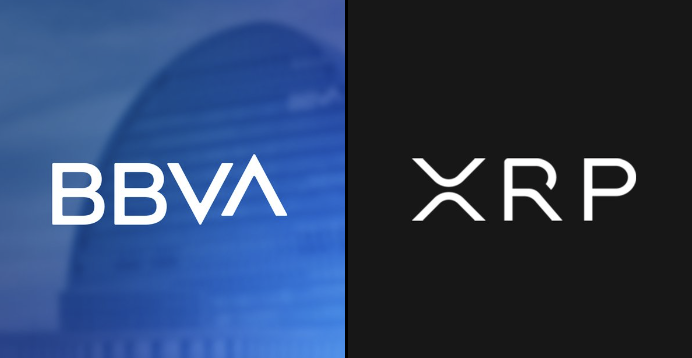
Introduction
In a significant move for the cryptocurrency landscape, Ripple has announced a new partnership with BBVA, one of Spain’s leading banks, to provide digital asset custody services for retail clients.
This collaboration marks a pivotal expansion of Ripple’s footprint in Europe, building on its established partnerships in Switzerland and Turkey. As the financial world continues to embrace blockchain technology, this development underscores XRP’s growing utility and Ripple’s role in driving institutional adoption of digital assets.
The Partnership
The partnership leverages Ripple’s advanced digital asset custody technology, integrated into BBVA’s recently launched retail service for trading and holding major cryptocurrencies like Bitcoin and Ether. This move aligns with the European Union’s Markets in Crypto-Assets (MiCA) regulation, which provides a regulatory framework for digital asset services across the region. According to a CoinDesk report published on September 8, 2025, BBVA’s head of digital assets, Francisco Maroto, emphasized that the integration allows the bank to offer an “end-to-end custody service” with the security and trust customers expect from a major financial institution.
This is not Ripple’s first venture with BBVA. The collaboration extends from Ripple’s acquisition of Metaco, a Swiss crypto custody specialist, which had previously partnered with BBVA. The technology, now refined under Ripple Custody, has already proven effective in Switzerland and Turkey, setting the stage for its deployment in Spain. This multi-country rollout highlights a strategic approach to scaling digital asset services across diverse markets.
The Foundation
The foundation for this partnership was laid in 2023 when Garanti BBVA Kripto, a BBVA subsidiary in Turkey, conducted a successful pilot with Ripple and IBM. As detailed in a BBVA press release from October 25, 2024, the pilot tested a secure environment for crypto asset trading, which has since expanded to serve over 14,000 users. The platform supports a range of assets, including XRP, Bitcoin, Ether, and others, with Ripple providing custody services and IBM contributing secure infrastructure via IBM LinuxONE.
This collaboration has bolstered confidence in the platform’s performance, security, and customer trust. Aaron Sears, SVP of Global Customer & Partner Success at Ripple, noted in the same release, “We’re thrilled to partner with Garanti BBVA Kripto to bolster the development of Türkiye’s vibrant crypto asset market.” The success in Turkey provides a blueprint for Spain, suggesting that BBVA’s retail clients can expect a robust and scalable solution.
The Technology
At the heart of this partnership is XRP, Ripple’s native cryptocurrency, which plays a critical role in the company’s ecosystem. XRP is designed for fast and cost-efficient cross-border payments, leveraging the XRP Ledger’s consensus algorithm to settle transactions in 3-5 seconds at a fraction of the cost of traditional systems. According to XRP Authority (March 26, 2025), this efficiency makes XRP an attractive option for remittances and institutional financial transfers, processing up to 1,500 transactions per cycle with minimal fees.
The BBVA partnership further validates XRP’s utility beyond speculation. Ripple’s On-Demand Liquidity (ODL) service, which utilizes XRP, processed $1.3 trillion in transactions in Q2 2025 alone, as reported by AInvest on September 6, 2025. Major banks like Santander and SBI Holdings have leveraged XRP to reduce foreign transaction costs by up to 70% compared to SWIFT, reinforcing its institutional appeal.
Legal battle
This partnership comes on the heels of Ripple’s resolution of its decade-long legal battle with the U.S. Securities and Exchange Commission (SEC) in August 2025, which reclassified XRP as a digital commodity. This regulatory clarity, combined with institutional adoption, has spurred significant interest, with $1.2 billion flowing into the ProShares Ultra XRP ETF and 11+ spot ETF applications expected to inject $4.3–$8.4 billion into the market (AInvest, September 6, 2025). As Europe adapts to MiCA and the U.S. pushes for clearer digital asset frameworks, XRP is poised to play a central role in the next generation of financial infrastructure.
Ripple’s partnership with BBVA is more than a business deal—it’s a testament to the evolving role of cryptocurrencies in traditional finance. By bridging the gap between banking and blockchain, Ripple is not only enhancing XRP’s utility but also setting a precedent for how digital assets can be integrated into mainstream services. As this collaboration unfolds, all eyes will be on Spain to see if it unlocks the next level of crypto adoption across Europe. Who’s next on Ripple’s list? Only time will tell.
















